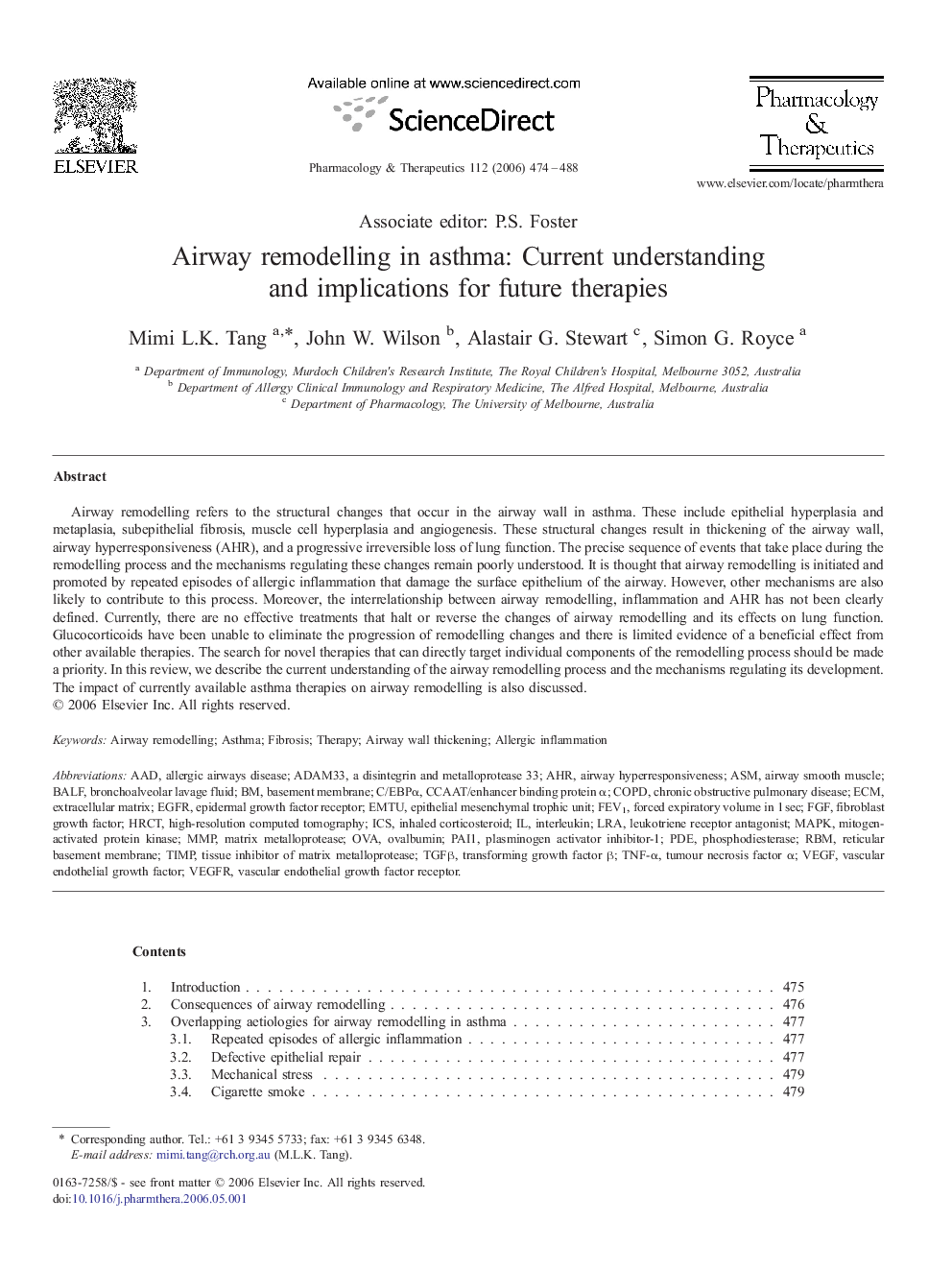| Article ID | Journal | Published Year | Pages | File Type |
|---|---|---|---|---|
| 2563789 | Pharmacology & Therapeutics | 2006 | 15 Pages |
Airway remodelling refers to the structural changes that occur in the airway wall in asthma. These include epithelial hyperplasia and metaplasia, subepithelial fibrosis, muscle cell hyperplasia and angiogenesis. These structural changes result in thickening of the airway wall, airway hyperresponsiveness (AHR), and a progressive irreversible loss of lung function. The precise sequence of events that take place during the remodelling process and the mechanisms regulating these changes remain poorly understood. It is thought that airway remodelling is initiated and promoted by repeated episodes of allergic inflammation that damage the surface epithelium of the airway. However, other mechanisms are also likely to contribute to this process. Moreover, the interrelationship between airway remodelling, inflammation and AHR has not been clearly defined. Currently, there are no effective treatments that halt or reverse the changes of airway remodelling and its effects on lung function. Glucocorticoids have been unable to eliminate the progression of remodelling changes and there is limited evidence of a beneficial effect from other available therapies. The search for novel therapies that can directly target individual components of the remodelling process should be made a priority. In this review, we describe the current understanding of the airway remodelling process and the mechanisms regulating its development. The impact of currently available asthma therapies on airway remodelling is also discussed.
